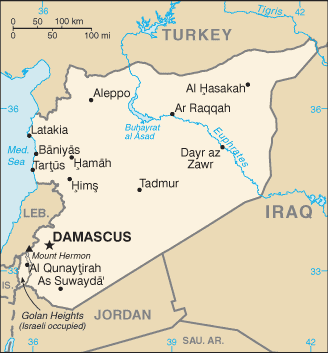The Syrian Crisis: “Polarization of Opinion” at the UN

Western leaders making similar statements in New York is only natural given their permanent drive to rein in Damascus and Tehran and revise the current system of international relations in circumvention of the UN.
“We know that Qatar sponsors a spate of negative changes that are taking place in Northern Africa, and that Qatar lends support to Syrian rebels. I think that the time is ripe for considering slapping sanctions on this gas dwarf.”
Participants of the 67th General Assembly in New York have remained at odds over the situation in Syria. On Thursday, Qatar urged interference in the political standoff between Syrian authorities and rebels, something that was supported by France and Tunisia. Moscow, Tehran and Cairo, for their part, continue to call for a diplomatic solution to the Syrian conflict. Russian President Vladimir Putin took part in the discussion in absentia, warning against taking decisions on Syria that bypass the UN.
All those urging the ouster of the Assad regime by outside forces specifically pointed out the UN’s current inability to act. British Prime Minister David Cameron, in turn, said that the blood of children killed during the civil war in Syria was a “terrible stain on the reputation of the United Nations.” He was echoed by French President Francois Hollande who described the UN’s inaction as “shocking.”
Western leaders making similar statements in New York is only natural given their permanent drive to rein in Damascus and Tehran and revise the current system of international relations in circumvention of the UN. Adding fuel to the fire was a statement by Sheikh Hamad bin Khalifa Al Thani, the ruling Emir of the State of Qatar, who called for mulling a military intervention in Syria, where he said a no-fly zone should be created.
This is a very dangerous tendency, believes Igor Korotchenko, a Moscow-based political analyst.
“Qatar acts as an instigator of sorts,” Korotchenko says, referring to Qatar possessing hefty sums and local tribal leaders’ ambitions. “We know that Qatar sponsors a spate of negative changes that are taking place in Northern Africa, and that Qatar lends support to Syrian rebels. I think that the time is ripe for considering slapping sanctions on this gas dwarf,” Korotchenko says.

Emir Sheikh Hamad bin Khalifa Al Thani of Qatar, Secretary of State Hillary Clinton and Brookings Institution President Strobe Talbott in 2010
Western elites and their Middle Eastern partners are irked with the position taken by Moscow and Beijing, which have repeatedly blocked the UN Security Council’s resolutions on Syria.
In an interview with the Voice of Russia broadcast on Thursday, Fyodor Lukyanov, editor-in-chief of the Russia in Global Affairs magazine, lambasted Western countries’ push for meddling in the Syrian conflict. He attributed this push to the West’s dissatisfaction with its own actions, Lukyanov said.
“The situation in Syria came to a standstill,” Lukyanov says, separately referring to the killing of a US Ambassador to Libya that recently hit international headlines. “Some in the United States have already slammed Washington’s desire to interfere in the Syrian conflict that I think reflects the West’s inability to act,” Lukayanov says, singling out the West’s frustration about Bashar Assad still being in power in Syria.
For his part, Egyptian President Mohamed Morsi called the resolution of the Syrian problem one of his key priorities. He added that this would help Syria contain a threat of a foreign military intervention that he stressed is being opposed by Cairo. Morsi was echoed by Russian Foreign Minister Sergei Lavrov who said on Thursday that the Syrian crisis should only be resolved through a national consensus in a wide-scale inter-Syrian dialogue under the UN’s aegis. Lavrov was speaking during his meeting with UN-Arab League envoy Lakhdar Brahimi on the sidelines of the UN General Assembly.

